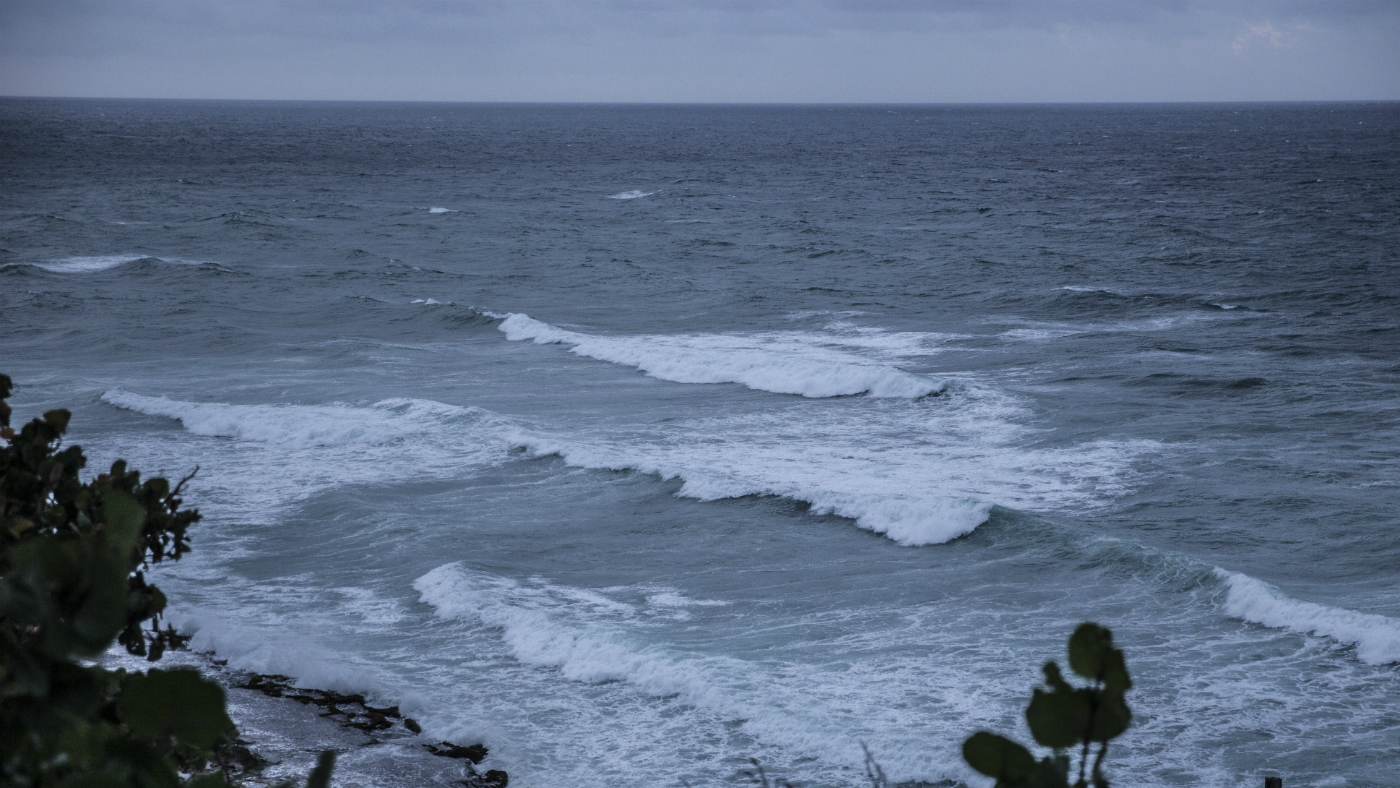Hurricane Maria: Puerto Rico suffers direct hit
Storm lashes Caribbean islands still recovering from Hurricane Irma

A free daily email with the biggest news stories of the day – and the best features from TheWeek.com
You are now subscribed
Your newsletter sign-up was successful
Hurricane Maria slammed into Puerto Rico’s east coast on Wednesday, bringing 155mph winds and the most dangerous weather conditions the US territory has seen in a century.
Maria hit Yabucoa, on Puerto Rico's eastern coast, as a category four storm at about 6am local time on Wednesday, UPI reports.
“It's time to hold on and stay safe,” Governor Ricardo Rossello told the island, which is home to 3.5 million Americans.
The Week
Escape your echo chamber. Get the facts behind the news, plus analysis from multiple perspectives.

Sign up for The Week's Free Newsletters
From our morning news briefing to a weekly Good News Newsletter, get the best of The Week delivered directly to your inbox.
From our morning news briefing to a weekly Good News Newsletter, get the best of The Week delivered directly to your inbox.
Maria is the second hurricane to hit the Caribbean this month. Earlier on Wednesday, Maria edged into St Croix in the US Virgin Islands just days after the territories had been struck by Hurricane Irma.
While St Croix was spared the eye of the hurricane, it was lashed by wind and rain from the 'eyewall'.
The British Virgin Islands (BVI) avoided the brunt of the storm, says The Daily Telegraph, although the amount of damage is unclear.
Nevertheless, Orlando Smith, premier of the BVI, warned: "Our islands are extremely vulnerable right now." He said the storm could turn debris left by Irma into dangerous projectiles.
A free daily email with the biggest news stories of the day – and the best features from TheWeek.com
Puerto Rico’s 3.5 million residents have been advised to take refuge in shelters ahead of Maria's expected landfall at around 1pm UK time. The capital city, San Juan, on the northern coast, is in the line of fire.
Although Puerto Rico escaped the worst of Irma, the US territory has been used as a refuge by other Caribbean islanders hit by the storm and as a base to store aid, raising fears about the future of the relief effort.
Maria devastated the island of Dominica after making landfall on Monday, with its sudden growth in strength catching the islanders by surprise, reports the BBC.
Roosevelt Skerrit, prime minister of the former British colony, said the storm had done “mind-boggling damage” and they islanders had lost “all what money can buy and replace”.
Hours earlier, the leader had himself been caught up in the hurricane and posted live updates on Facebook as the roof was torn from his home.
Local media, citing the Caribbean Disaster Emergency Management Agency, said there had been six deaths among the 73,000 population, but added that the numbers were still to be confirmed.
The UK is trying to get an assessment team on Dominica, reports The Guardian, while the BBC says the government has deployed a 42-strong “military resilience team” to the BVI.
Officials also said the 1,300 troops put in the region after Irma would be staying. An additional military team has been deployed.
Speaking on BBC Radio 4’s Today programme, Foreign Office minister Alan Duncan once again defended the UK’s response to the storms.
Asked whether Britain should have done more to help when Irma struck, he said: “No, I think this is an utterly unfounded accusation. If you had read the French papers they were criticising the French government for not doing as much as the British. What we actually did was professional and quick.”
-
 The EU’s war on fast fashion
The EU’s war on fast fashionIn the Spotlight Bloc launches investigation into Shein over sale of weapons and ‘childlike’ sex dolls, alongside efforts to tax e-commerce giants and combat textile waste
-
 How to Get to Heaven from Belfast: a ‘highly entertaining ride’
How to Get to Heaven from Belfast: a ‘highly entertaining ride’The Week Recommends Mystery-comedy from the creator of Derry Girls should be ‘your new binge-watch’
-
 The 8 best TV shows of the 1960s
The 8 best TV shows of the 1960sThe standout shows of this decade take viewers from outer space to the Wild West
-
 Epstein files topple law CEO, roil UK government
Epstein files topple law CEO, roil UK governmentSpeed Read Peter Mandelson, Britain’s former ambassador to the US, is caught up in the scandal
-
 Iran and US prepare to meet after skirmishes
Iran and US prepare to meet after skirmishesSpeed Read The incident comes amid heightened tensions in the Middle East
-
 Israel retrieves final hostage’s body from Gaza
Israel retrieves final hostage’s body from GazaSpeed Read The 24-year-old police officer was killed during the initial Hamas attack
-
 China’s Xi targets top general in growing purge
China’s Xi targets top general in growing purgeSpeed Read Zhang Youxia is being investigated over ‘grave violations’ of the law
-
 Panama and Canada are negotiating over a crucial copper mine
Panama and Canada are negotiating over a crucial copper mineIn the Spotlight Panama is set to make a final decision on the mine this summer
-
 Why Greenland’s natural resources are nearly impossible to mine
Why Greenland’s natural resources are nearly impossible to mineThe Explainer The country’s natural landscape makes the task extremely difficult
-
 Iran cuts internet as protests escalate
Iran cuts internet as protests escalateSpeed Reada Government buildings across the country have been set on fire
-
 US nabs ‘shadow’ tanker claimed by Russia
US nabs ‘shadow’ tanker claimed by RussiaSpeed Read The ship was one of two vessels seized by the US military